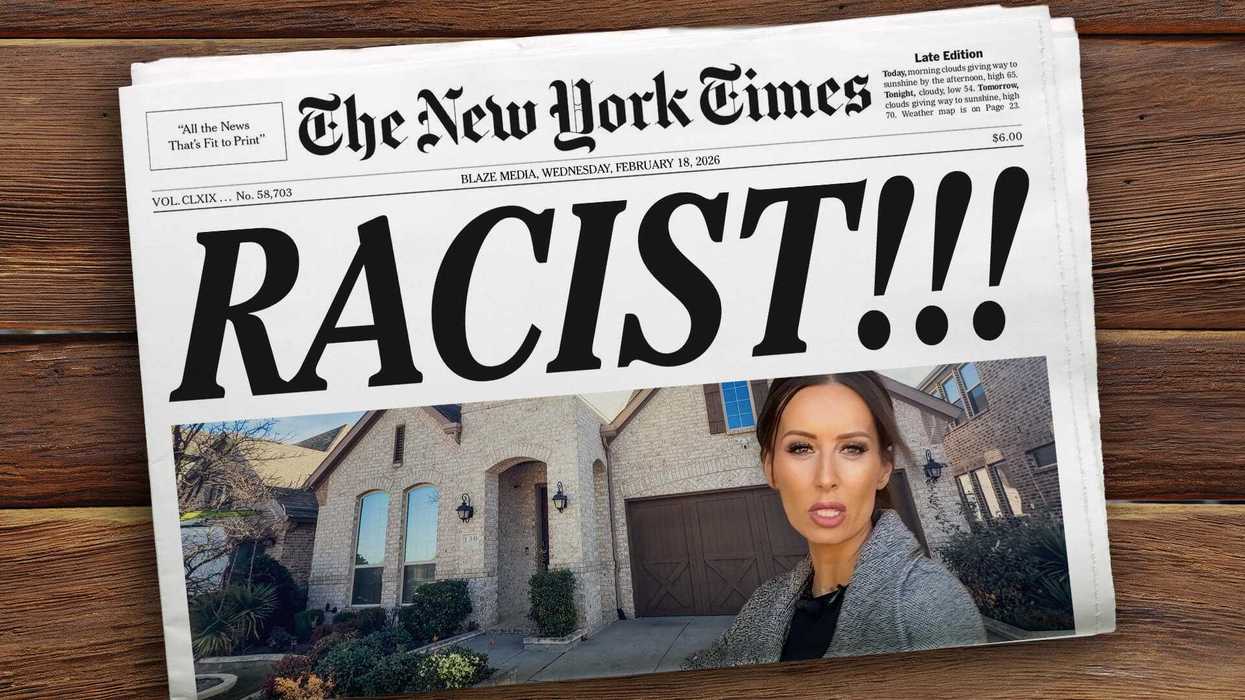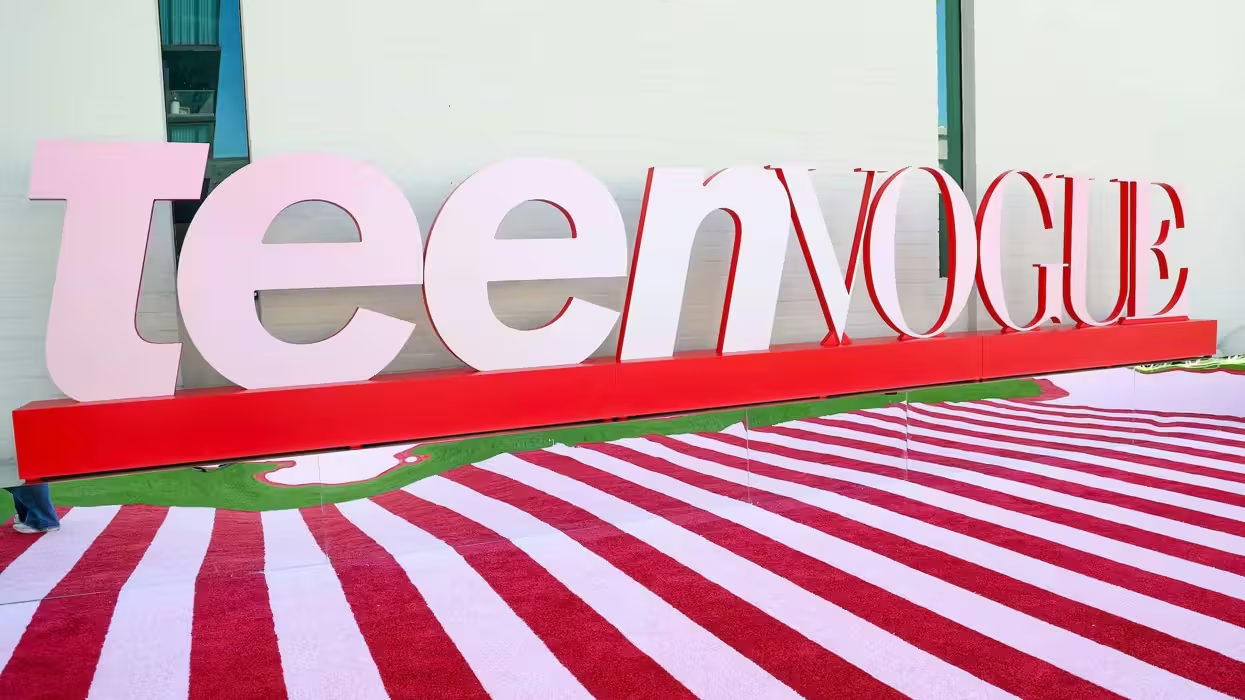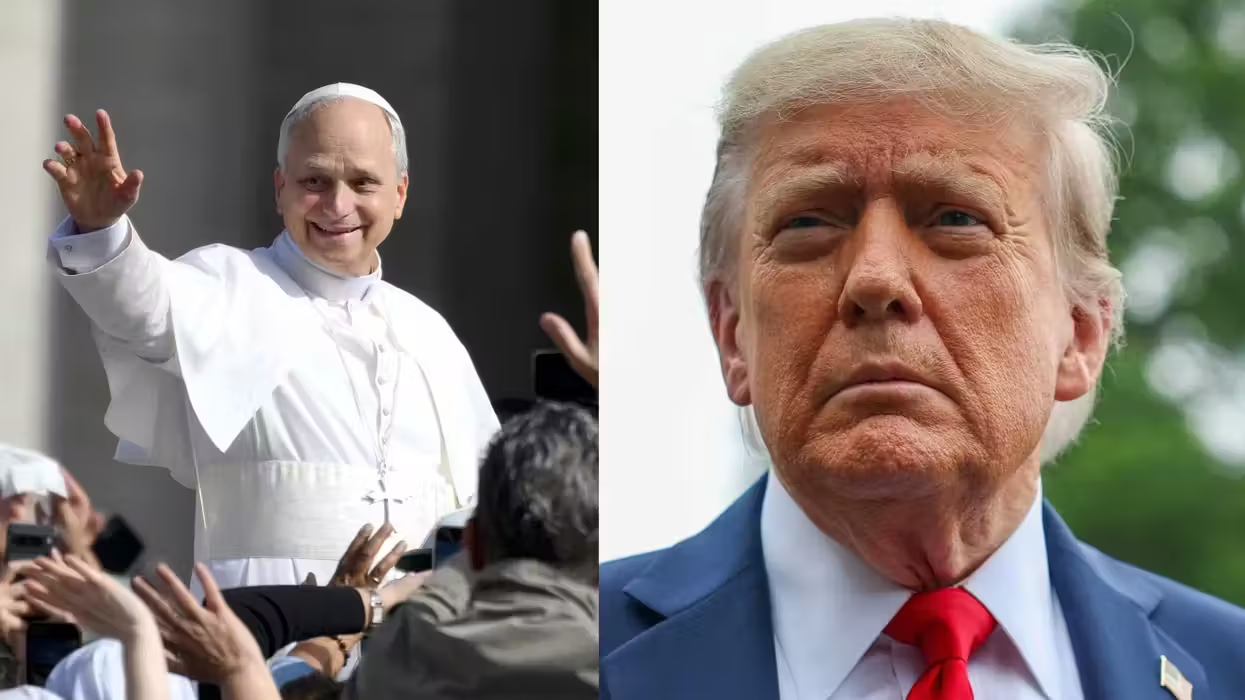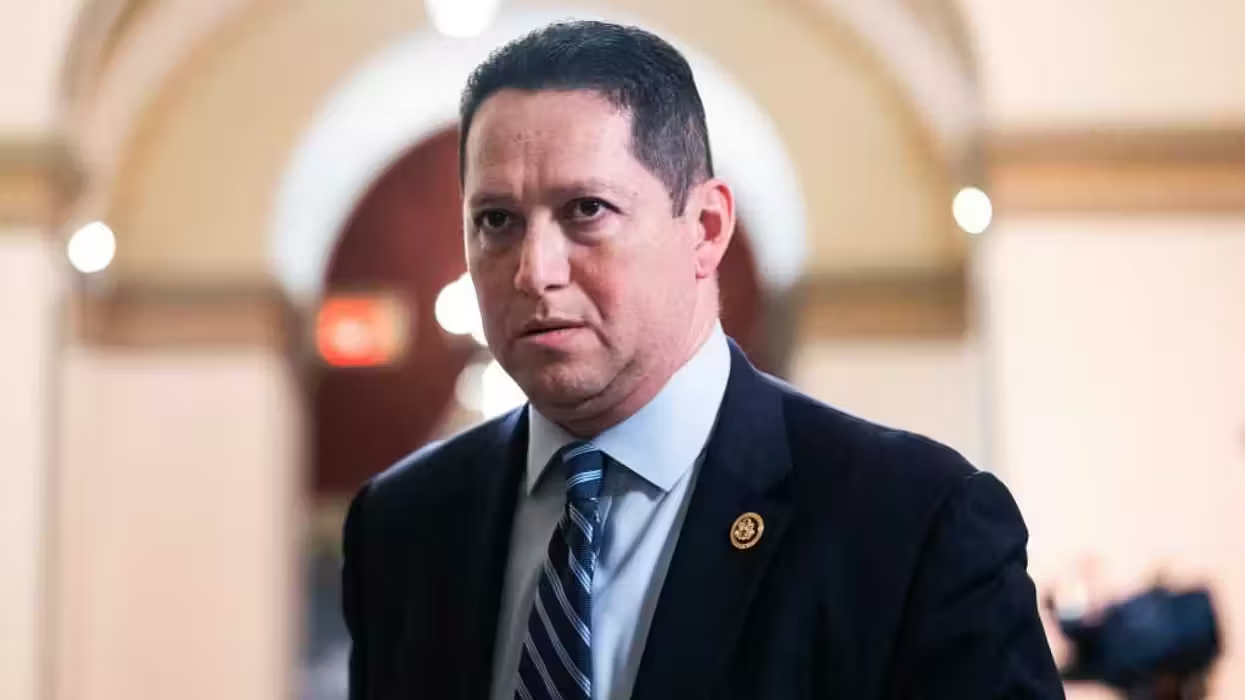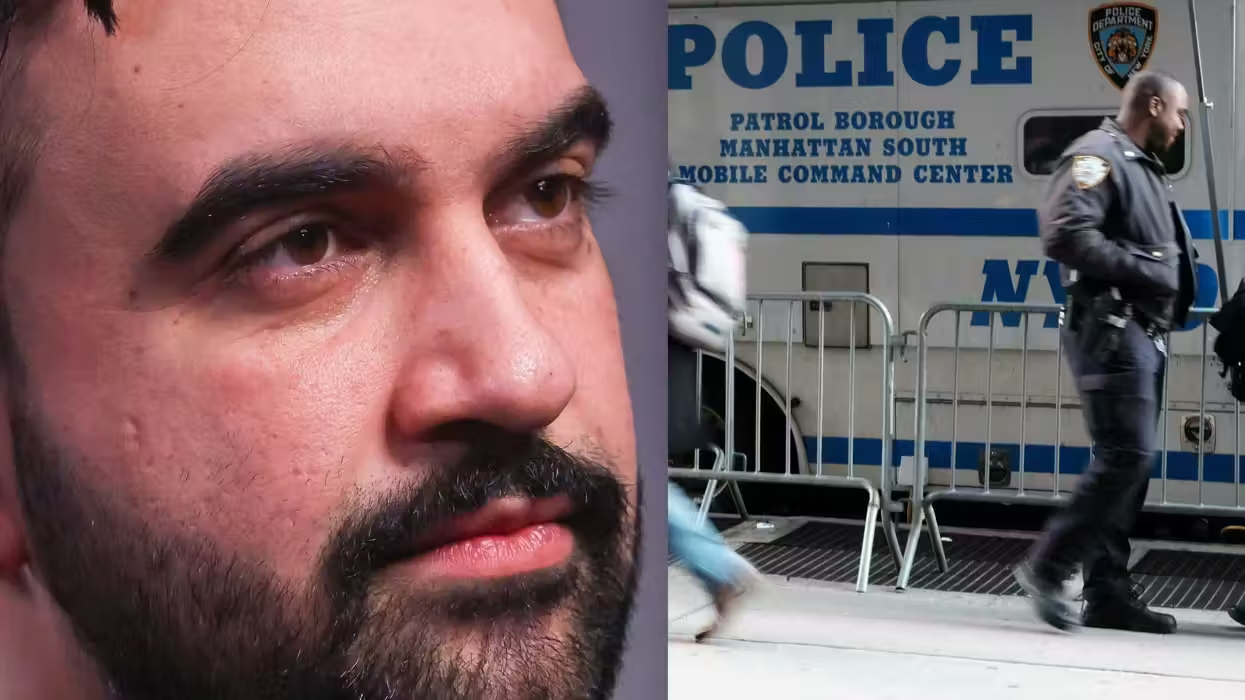
© 2026 Blaze Media LLC. All rights reserved.
While Dems Are Complaining About GOP Senators' Letter to Iran, Guess What Ted Kennedy Did in 1983
March 11, 2015
"This could bring about the fall of the presidential campaign of 1984, which would benefit the Democratic Party."
The outrage over the letter sent by 47 U.S. senators to Iran's leaders has been called everything from "unprecedented" to "treasonous."
But is it treason? Is it unprecedented?
Based on a story first published in 1991, the letter organized by Sen. Tom Cotton (R-Ark.) and signed by 46 Senate colleagues does not mark the first time an elected official has reached out to a foreign government involved in sensitive nuclear negotiations with a U.S. president.
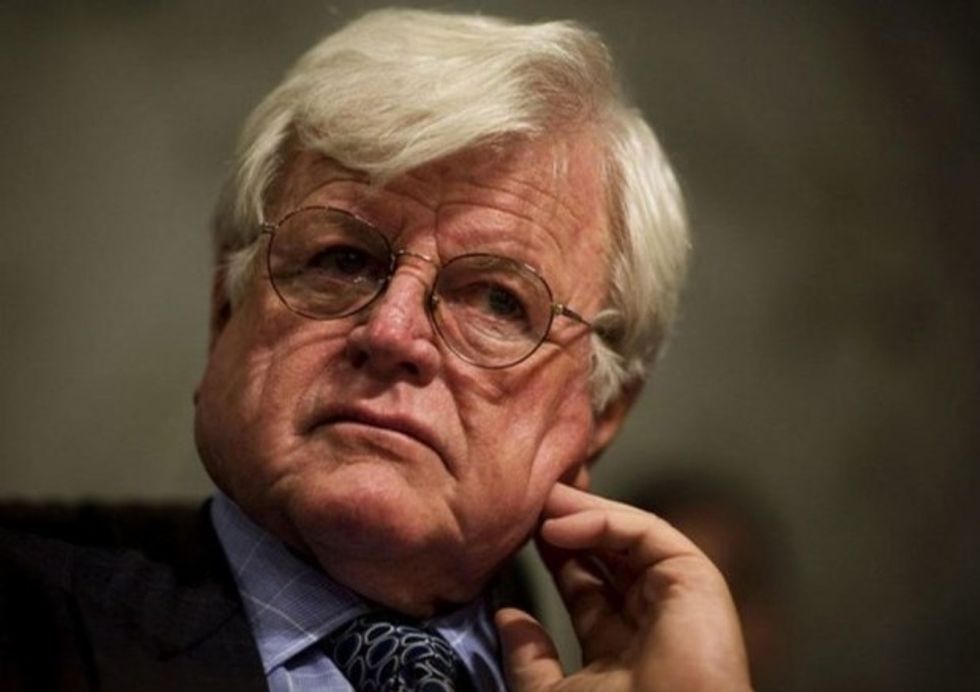
In 1983, the late Sen. Ted Kennedy concocted a scheme meant not only to undermine President Ronald Reagan's nuclear arms reduction talks with the Soviet Union, but to propel the senator into the catbird seat for the 1988 presidential election.
The Kennedy plan was only revealed after a treasure trove of documents from the dissolved Soviet empire was released. London Times reporter Tim Sebastian brought the story to the world in 1991, revealing a memo from then-KGB head Viktor Chebrikov to the Soviet leader, Yuri Andropov.
In the note, Chebrikov detailed Kennedy's plan, presented in person, by former U.S. senator and close Kennedy friend, John Tunney. (Kennedy was the best man at Tunney's 1977 wedding.)
Chebrikov's account of two days in May 1983 included Tunney detailing a series of steps that would undermine Reagan's negotiations with the Soviet leader while strengthening Kennedy's position and making Democrats look like they were leading the push for a peaceful world, free of fear of a nuclear war between the U.S. and the Soviets.
The story didn't receive too much attention until Peter Robinson's opinion piece was carried in the New York Post and Forbes online in 2009.
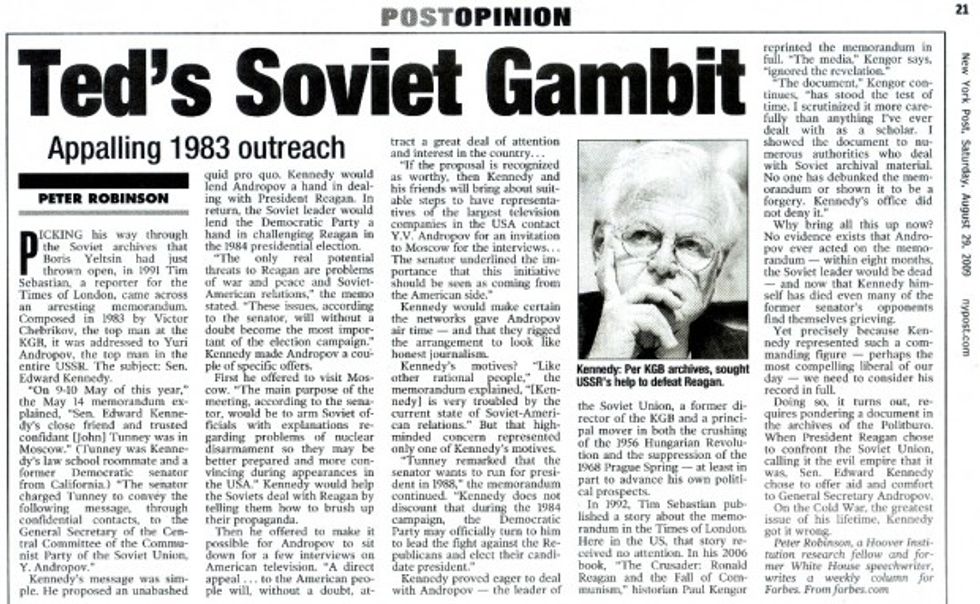
The Chebrikov memo stated that Kennedy is "very troubled by the current state of Soviet-American relations." It added, "The main reason for this is Reagan’s belligerence, and his firm commitment to deploy new American middle range nuclear weapons within Western Europe."
The memo went on:
According to Kennedy, the current threat is due to the President’s refusal to engage any modification on his politics. He feels that his domestic standing has been strengthened because of the well publicized improvement of the economy: inflation has been greatly reduced, production levels are increasing as is overall business activity. For these reasons, interest rates will continue to decline. The White House has portrayed this in the media as the "success of Reaganomics."
The KGB leader noted that an economic slide in America could help the Democrats' chances in the upcoming election:
A few well known economists and members of financial circles, particularly from the north-eastern states, foresee certain hidden tendencies that may bring about a new economic crisis in the USA. This could bring about the fall of the presidential campaign of 1984, which would benefit the Democratic party.
The Chebrikov memo also laid out a two-step proposal from Kennedy, presented by Tunney, to the Soviet leadership:
1. Kennedy asks Y.V. Andropov to consider inviting the senator to Moscow for a personal meeting in July of this year. The main purpose of the meeting, according to the senator, would be to arm Soviet officials with explanations regarding problems of nuclear disarmament so they may be better prepared and more convincing during appearances in the USA. He would also like to inform you that he has planned a trip through Western Europe, where he anticipates meeting England’s Prime Minister Margaret Thatcher and French President Mitterand in which he will exchange similar ideas regarding the same issues.
In addition to the invitation from Andropov, Kennedy pledged to bring Republican Sen. Mark Hatfield, Kennedy's partner on a 1982 proposed nuclear freeze between the U.S. and the USSR.
The second step in Kennedy's plan involved bringing Andropov to the United States to speak directly to the American people:
2. Kennedy believes that in order to influence Americans it would be important to organize in August-September of this year, televised interviews with Y.V. Andropov in the USA. A direct appeal by the General Secretary to the American people will, without a doubt, attract a great deal of attention and interest in the country. The senator is convinced this would receive the maximum resonance in so far as television is the most effective method of mass media and information.
Kennedy pledged to make certain the biggest names in American television news would also air interviews with the Soviet leader, mentioning "television columnists Walter Cronkite or Barbara Walters could visit Moscow."
The Kennedy proposal also included Tunney's indication that Kennedy's presidential aspirations were indeed real:
Tunney remarked that the senator wants to run for president in 1988. At that time, he will be 56 and his personal problems, which could hinder his standing, will be resolved (Kennedy has just completed a divorce and plans to remarry in the near future).
The proposal was apparently never seriously considered by Yuri Andropov; part of the reason it may have been ignored was the Soviet leader's rapidly deteriorating health. Three months before Tunney took Kennedy's plan to Moscow, Andropov reportedly experienced total renal failure. He was hospitalized in August 1983 and died in February 1984.
The entire memo appeared in Paul Kengor's book, "The Crusader: Ronald Reagan and the Fall of Communism." According to Kengor, its validity has not been questioned. Forbes quoted Kengor on the memo: "I scrutinized it more carefully than anything I’ve ever dealt with as a scholar" and "I showed the document to numerous authorities who deal with Soviet archival material...No one has debunked the memorandum or shown it to be a forgery."
Additionally, Kengor said, "Kennedy’s office did not deny it.”
But Ted Kennedy's back-channel pitch to the Soviets isn't the only such instance that shows Senate Republicans are not blazing entirely new ground. In 1984, 10 Democrats wrote a "Dear Commandante" letter to Nicaraguan leader Daniel Noriega. Rep. Newt Gingrich called this action "at best, unwise, at worst, illegal."
And in 2007 — one year before Barack Obama was elected president — then-House Speaker Nancy Pelosi paid a visit to a foreign leader against the wishes of President George W. Bush — to Syrian dictator Bashar Assad.
(H/ T - The Federalist)
—
Read the entire text of the KGB letter.
—
Follow Mike Opelka (@Stuntbrain) on Twitter
Want to leave a tip?
We answer to you. Help keep our content free of advertisers and big tech censorship by leaving a tip today.
Want to join the conversation?
Already a subscriber?
more stories
Sign up for the Blaze newsletter
By signing up, you agree to our Privacy Policy and Terms of Use, and agree to receive content that may sometimes include advertisements. You may opt out at any time.
Related Content
© 2026 Blaze Media LLC. All rights reserved.
Get the stories that matter most delivered directly to your inbox.
By signing up, you agree to our Privacy Policy and Terms of Use, and agree to receive content that may sometimes include advertisements. You may opt out at any time.


